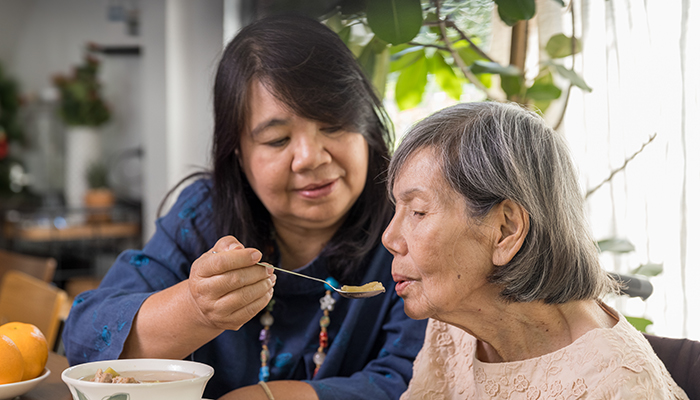
In most families, there is one person who takes on the lion’s share of caring for an aging loved one. Perhaps it’s the oldest daughter. Or the emotionally closest child. Or maybe it’s the geographically closest relative. And when there are no siblings, it’s usually the only child.
Being primary can be quite a job. In many cases it involves driving to the doctor and managing medications, handling finances, providing for daily needs, coordinating care services, and keeping the elder’s spirits up. If you are that person, don’t try to do it alone—even if it seems like that’s the only choice.
Here is advice from family caregivers who have been through this journey:
- Take breaks. It may not feel possible, but there are ways. If you forgo breaks, you risk burning out—which has negative consequences for everyone, not just you.
- Call a family meeting to discuss sharing responsibilities. Old family dynamics often resurface in this context. Consider getting the services of a social worker or care manager to facilitate a discussion.
- Be open to receiving help. Some families complain that the primary caregiver is so particular, there isn’t a realistic way to pitch in. Does that ring even a small bell with you? You may feel that you are the only one who can do it right or that you have to do it all. Now is a time to challenge that belief about yourself, even if you are an only child.
- What if it isn’t perfect? Of course, you want the best for your loved one. But consider for a moment: What is the worst that could happen if things weren’t done exactly up to the standard that you set? Perhaps there would be some discomfort for you and your relative, but nothing compared to how bad it would be if you burned out or ended up with a health crisis of your own (not uncommon among primary caregivers).
- Be clear about the costs and the rewards. What are you sacrificing as you carry out this role? (Social life? Career advancement? Your own retirement security?) What do you realistically enjoy or gain? Identifying the pluses and minuses can help you focus on what needs changing and what you want to emphasize.
- Family patterns die hard. Guilt or the perennial desire for parental approval can wear you down quickly! Plus, it’s common for siblings to revert to old resentments and rivalry during the eldercare years. Don’t get hijacked by the past! From your adult self, acknowledge what you realistically can and can’t do. Get professional help if it’s proving too difficult to reset internally.
This post is brought to you by Guardian Angel Hospice.
Might you or a loved one benefit from hospice care?
Check out our services
- Hospice in Kokomo and surrounding communities
- Hospice in Logansport and surrounding communities
- Hospice in Lafayette and surrounding communities
- Hospice in Lebanon and surrounding communities
- Hospice in Frankfort and surrounding communities
- Hospice in Carmel and surrounding communities
- Hospice in Indianapolis and surrounding communities

